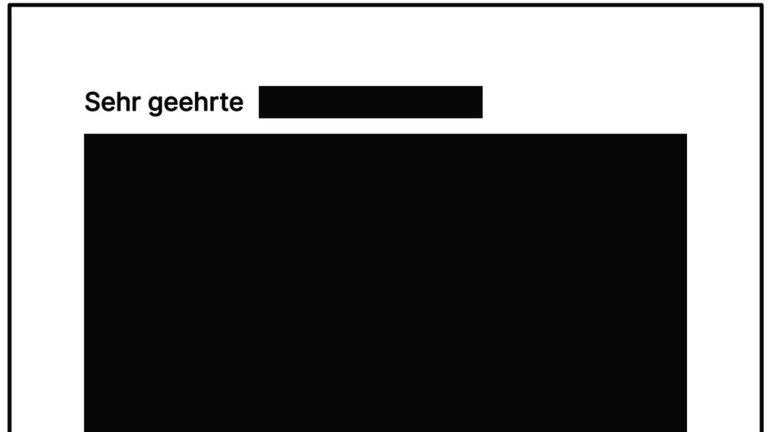43 Organisationen fordern Transparenz bei Verhandlungen über DSA und DMA
Die EU hält zentrale Dokumente aus den Verhandlungen über den Digital Services Act und den Digital Markets Act zurück. Wir fordern in einem breiten Bündnis die aktive Veröffentlichung der Dokumente, um kritische Berichterstattung und Mitbestimmung zu ermöglichen.

Als neues Grundgesetz für die Online-Welt wurde das EU-Gesetzespaket aus Digital Services Act (DSA) und Digital Markets Act (DMA) einst gepriesen. Mehr Transparenzpflichten für die großen Plattformen, mehr Macht den Nutzer:innen. Aber die Entstehung der beiden Gesetze spricht eine andere Sprache.
Denn während die Digitalkonzerne gegen die Einschränkungen ihrer ausbeuterischen Geschäftsmodelle massive Lobbyarbeit betreiben, bleibt die Zivilgesellschaft wieder einmal außen vor. Zentrale Dokumente aus dem Verhandlungsprozess zwischen den EU-Institutionen werden nicht veröffentlicht, die kritische Berichterstattung ist auf Leaks angewiesen.
Geheimhaltung verstärkt Machtungleichgewicht
Gemeinsam mit Lobbycontrol, Corporate Europe Observatory und 40 weiteren zivilgesellschaftliche Organisationen und Gewerkschaften aus ganz Europa haben wir daher heute einen offenen Brief an die Verhandlungsführer:innen des DSA und DMA geschickt, in dem wir die aktive Veröffentlichung von Dokumenten der Trilogverhandlungen fordern.
Triloge sind eigentlich eine informelle Praxis, kommen aber in 80% aller Verfahren vor. Sie sind damit längst zu einem elementaren Bestandteil des Gesetzgebungsprozesses geworden, in den die Öffentlichkeit Einblick haben muss. Eine Geheimhaltung verstärkt das Machtungleichgewicht, das zwischen Konzernen und Zivilgesellschaft herrscht.
„Black Box EU“: Jetzt Trilog-Dokumente anfragen
Bereits letztes Jahr haben wir mit unserer Kampagne „Black Box EU“ auf die Intransparenz der Trilogverhandlungen aufmerksam gemacht. Entdecken Sie auf unserer Kampagnenseite Dokumente aus vergangenen Gesprächen oder fragen Sie neue an!
28 February 2022 Dear MEP Schwab and MEP Schaldemose, Dear Minister O, Dear Executive Vice-President Vestager and Commissioner Breton, As civil society organisations and trade unions working on transparency, democracy and digital rights we are writing to you to request urgent improvements to the transparency of the trilogue negotiations of the Digital Markets Act and the Digital Services Act. These two complementary proposals have the potential to make digital services safer, and to protect and empower users, workers and small businesses. Together, they touch upon a vast array of issues that can have concrete consequences for peoples’ lives. The Digital Services pack has also been the target of intense lobbying since the onset, especially by Big Tech 1 2 3 firms and its intermediaries. Research by Lobbycontrol and Corporate Europe Observatory has shown how well-resourced companies have attempted to influence this process at all stages and managed to achieve unparalleled levels of access to the discussions. Civil society organisations and citizens cannot match the resources spent and the access gained by Big Tech. Secrecy of policy making only further intensifies this unequal playing field, shutting citizens off from crucial discussions that will have an impact on their lives. We were therefore disappointed to see that the European Parliament and the Council of the European Union have not made arrangements to ensure that the trilogue negotiations of these important files would be transparent and easily accessible. The agendas are not public and neither the European Parliament or the Council of the European Union have published the up-to-date multi-column document with the agreements achieved thus far or the preliminary positions of the Presidency of Council in relation to the amendments proposed by the Parliament (the 4th column). Curiously, the European Parliament and Council published an empty DMA four column document at the beginning of February 2022, described as the most recent version of the document, but dated January 11. 4 Leaks of newer versions have exposed that this is not true. Trilogue negotiations are a crucial moment of EU policy-making: the time when EU Parliament and Council discuss and reach agreements on EU policy proposals. According to the EU Parliament, in 2018 between 70 and 80% of the European Union’s legislative acts are adopted following a trilogue. It should be noted that, in the majority of cases, the final trilogue agreement is swiftly adopted. Yet, meetings are held behind closed doors and access to documents relating to these discussions are often rejected. 5 As you will be aware, in 2018 the General Court in case T-540/15 De Capitani v Parliament ruled that these types of documents not only fall within the scope of access to documents regulation, but also constitute legislative documents, and hence heightened levels of transparency and openness are essential to ensure the legitimacy of this process. Further, the Court affirmed that “If citizens are to be able to exercise their democratic rights they must be in a position to follow in detail the decision-making process within the institutions taking part in the legislative procedures and to have access to all relevant information” . To ensure that the trilogue negotiations on the Digital Services Act and Digital Markets Act are genuinely transparent and open to citizens, we ask the co-legislators to: • Publish proactively, on a rolling basis a list of documents tabled during trilogue negotiations, in line 6 the European Ombudsman’s recommendation ; • Make public an up-to-date calendar of trilogue meetings including summary agendas; 1 https://corporateeurope.org/en/2021/08/lobby-network-big-techs-web-influence-eu 2 https://www.lobbycontrol.de/2021/12/lobbycontrol-recherche-das-sind-die-lobbytreffen-der-dma- berichterstatterinnen/ 3 https://corporateeurope.org/en/2022/01/how-corporate-lobbying-undermined-eus-push-ban-surveillance-ads 4 https://twitter.com/lobbyctrl_tech/status/1489215461933858818?cxt=HHwWhICyqdHk4KopAAAA 5 https://curia.europa.eu/juris/document/document.jsf;jsessionid=DF2462744CB738E58A5817B497F94D51? text=&docid=200551&pageIndex=0&doclang=en&mode=lst&dir=&occ=first&part=1&cid=2875242 6 https://www.ombudsman.europa.eu/en/decision/en/69206

• Publish proactively the four-column document on a rolling basis. We thank you in advance for considering these proposals. We would welcome the opportunity to further discuss these issues with you in a meeting. Should you have any question, please do not hesitate to come back to us. Yours sincerely, Corporate Europe Observatory Lobbycontrol FragDenStaat Access Info Europe Transparency International EU The Good Lobby SumOfUs Daphne Caruana Galizia Foundation Reporters Without Borders (RSF) The Coaltion For Women In Journalism (CFWIJ) Iraqi journalism Rights Defense Association (IRJDA) Fair Vote Foxglove Global Witness Defend Democracy Gong Vouliwatch Statewatch Waag Future Lab Inštitút ľudských práv - Human Rights Insitute Civil Liberties Union for Europe (Liberties) Access to Information Programme Foundation Citizens Network Watchdog Poland UNI Europa European Trade Union Confederation (ETUC) European Federation of Public Services Unions (EPSU) AK EUROPA Alliance4Europe Institute for Strategic Dialogue (ISD) People Vs Big Tech Irish Council for Civil Liberties Peter Tatchell Foundation ARTICLE 19 Panoptykon Foundation Lie Detectors Je Suis Là Global Action Plan Simply Secure Ranking Digital Rights Uplift digiQ Missing Children Europe ASEED Europe





